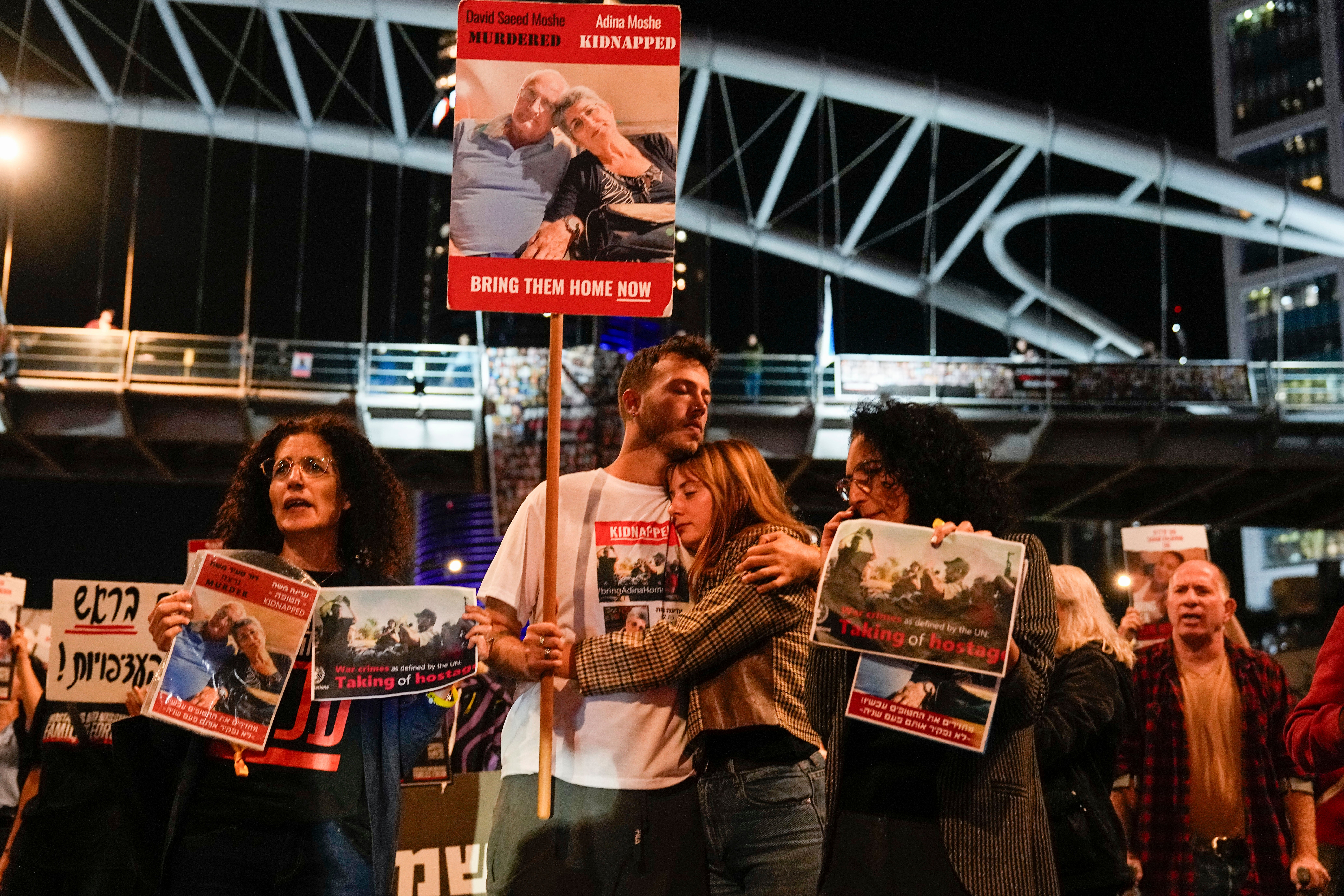Who are the Palestinian prisoners to be swapped for Hamas hostages?
Israel’s ministry of justice released the names of 300 Palestinian prisoners proposed for a swap for hostages held by Hamas in Gaza

Your support helps us to tell the story
From reproductive rights to climate change to Big Tech, The Independent is on the ground when the story is developing. Whether it's investigating the financials of Elon Musk's pro-Trump PAC or producing our latest documentary, 'The A Word', which shines a light on the American women fighting for reproductive rights, we know how important it is to parse out the facts from the messaging.
At such a critical moment in US history, we need reporters on the ground. Your donation allows us to keep sending journalists to speak to both sides of the story.
The Independent is trusted by Americans across the entire political spectrum. And unlike many other quality news outlets, we choose not to lock Americans out of our reporting and analysis with paywalls. We believe quality journalism should be available to everyone, paid for by those who can afford it.
Your support makes all the difference.Israel has released the names of 300 Palestinians prisoners being held across the country, ahead of an imminent swap for dozens of hostages taken by Hamas during their attack on 7 October that killed 1,200 people and saw 240 people taken captive into Gaza.
The deal is the culmination of weeks of back-and-forth negotiations mediated by US and Qatari officials and will involve a four-day truce during which the hostages and prisoners will be released.
There is also the option for an extension: for every ten more hostages released by Hamas, an additional day of ceasefire will be tacked on to the original four day agreement.
The captives taken by Hamas include 33 children, the youngest of whom is 10 months old, according to the Israeli government, and at least 62 are women.
It is expected that around half of the Palestinians named by the Israeli Ministry of Justice will be released in exchange for a minimum of 50 of those women and children taken by Hamas. There is a possibilty that such exchanges will be extended if Hamas releases more hostages.
The reason their names have been published is because of a legal formality in Israel that requires affording Israeli citizens 24 hours to make an appeal to the Supreme Court to block the release of certain prisoners.
The majority of Palestinians named in the document are teenagers between 17 and 18. The overall age range is between 14 and 59. Out of the 300 listed, 274 are male.
Their alleged crimes vary from attempted murder to “damage to the security of an area”.
Many of them are yet to be sentenced. Their status on the document remains “under arrest”.
Of the total 7,000 Palestinian prisoners in Israel, nearly 30 per cent are being held in “administrative detention”, according to Addameer, a Palestinian prisoner’s rights group.
This means that they are being held indefinitely under arrest without being charged, according to a spokesperson.
The group also claims that those being held under “administrative detention” have been arrested for offences related to political activity and free speech rather than crimes like drugs or violence.
Addameer said it had also received many reports in recent weeks that Palestinians in the West Bank and Israel had been arrested on charges of incitement for their social media posts.
Adalah, the Legal Center for Arab Minority Rights in Israel, said that it was monitoring 121 cases of these arrests.
They said some of these social media posts “merely contained expressions of solidarity with the Palestinian people in Gaza, or even verses shared from the Quran.”
Earlier this month, the Israeli government passed an amendment to a counterterrorism law that criminalised the “consumption of terrorist materials”.
The number of Palestinian detainees subsequently increased from 5,000 to 7,000.
The Israeli military has also said that it has apprehended 300 people in Gaza during the ground invasion that it claimed were connected to armed Palestinian groups, and that they “were brought into Israeli territory for further interrogations.”
Military Court Watch, a nonprofit legal group, said last year that of the 100 Palestinian children detained by Israeli forces that it had interviewed, 74 per cent reported physical abuse, and 42 per cent said they were put in solitary confinement.
Join our commenting forum
Join thought-provoking conversations, follow other Independent readers and see their replies
Comments